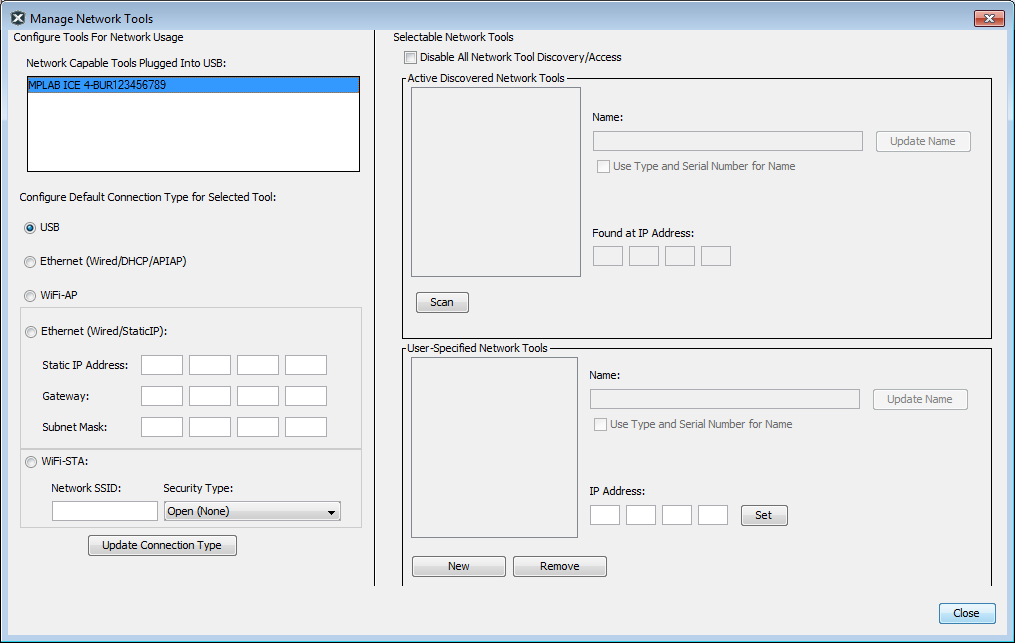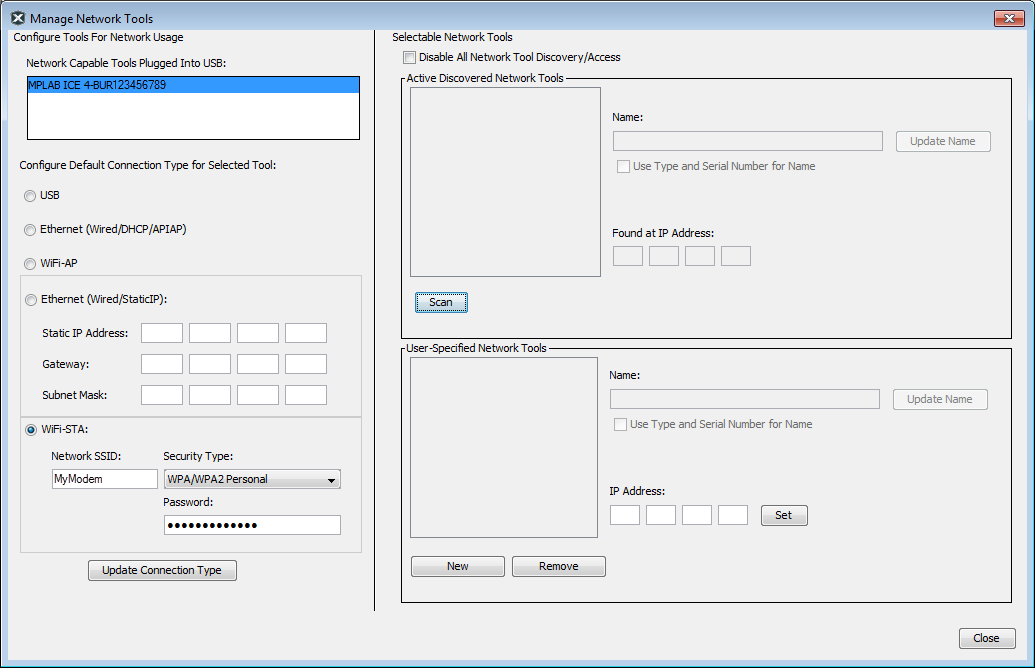3.2.3 Wi-Fi and Ethernet - Setup and Tool Discovery
Follow the steps in the table to set up the desired Wi-Fi or Ethernet mode and then find the connection.
| Step | Action |
|---|---|
| 1 | Connect the emulator to your PC via the USB cable. |
| 2 | Go to Tools> Manage Network Tools in MPLAB X IDE (see figure below). |
| 3 | Under "Network Capable Tools Plugged into USB," select your emulator. |
| 4 | Under "Configure Default Connection Type for Selected Tool" select
the radio button for the connection you want. Ethernet (Wired/StaticIP): Input Static IP Address, Subnet Mask and Gateway. Wi-Fi STA: Input SSID, Security type and password, depending on the security type of your home/office router. Click Update Connection Type. |
| 5 | Unplug the USB cable from your emulator unit. |
| 6 | The emulator will restart automatically and come up in the connection
mode you selected. Then either: All Except Wi-Fi AP: The LEDs will display for either a successful network connection or a network connection failure/error. Wi-Fi AP: The normal Wi-Fi scanning process of Windows OS / macOS / Linux OS will scan for available Wi-Fi networks on your PC. Find the tool with SSID "ICE4_MTIxxxxxxxxx" (where xxxxxxxxx is your tool unique serial number) and use the password "microchip" to connect to it. |
| 7 | Now go back to the "Manage Network Tools" dialog and click on the
Scan button, which will list your emulator under "Active
Discovered Network Tools." Select the checkbox for your tool and close
the dialog. Wi-Fi AP: On Windows 10 computers, you may see the message “No Internet, Secured” and yet the button will say “Disconnect” showing that there is a connection. This message means that the emulator is connected as a router/AP but not by direct connection (Ethernet.) |
| 8 | If your emulator is not found under "Active Discovered Network Tools," you can manually enter information in the "User Specified Network Tools" section. You must know the IP address of the tool (by the way of network admin or static IP assignment). |


